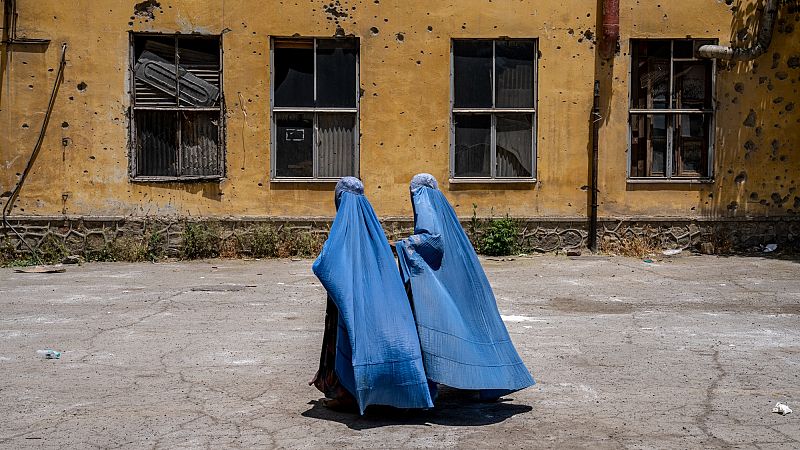International Criminal Court Issues Arrest Warrants for Taliban Leaders
The International Criminal Court (ICC) has issued arrest warrants for the supreme leader of the Taliban and the head of Afghanistan’s Supreme Court, accusing them of committing crimes against humanity by persecuting women and girls in the country. The warrants, issued on Tuesday, allege that the leaders were involved in “ordering, inducing or soliciting” the persecution of individuals based on their gender since the Taliban took control four years ago.
The accused include Hibatullah Akhunzada, the Taliban’s supreme leader, and Abdul Hakim Haqqani, the head of Afghanistan’s Supreme Court. The ICC’s charges extend beyond the treatment of women and girls, as it also claims the leaders targeted individuals due to their expressions of sexuality and/or gender identity, which are considered inconsistent with the Taliban’s policies on gender.
Additionally, people who are perceived as “allies of girls and women” have faced persecution on political grounds. This broad interpretation of the accusations highlights the comprehensive nature of the alleged violations.
Restrictions on Women’s Rights
Since the Taliban seized power in August 2021, there has been a significant rollback of women’s rights in Afghanistan. The new regulations imposed by the regime have severely limited access to education, privacy, family life, and the freedoms of movement, expression, thought, conscience, and religion. These restrictions are enforced through edicts and decrees that have drastically altered daily life for women and girls.
One of the most controversial aspects of these regulations is the introduction of morality laws that require women to wear face coverings and prohibit them from leaving their homes or traveling without a male “guardian.” These rules have led to an increase in child marriage and arbitrary detention of individuals fleeing abuse, according to reports from Amnesty International.
Additional Restrictions and Violations
The Taliban has also implemented a ban on women’s voices being heard in public, as part of a broader requirement for women to conceal their face, body, and voice outside the home. In March 2024, the Taliban’s leader, Akhunzada, announced that authorities would resume publicly stoning women to death, marking a severe escalation in the use of brutal punishments.
Girls have been completely barred from accessing secondary education, and women have been excluded from most roles in the public sector. These policies reflect a systematic effort to suppress women’s participation in society and limit their autonomy.
Impact on Men and Boys
While much of the focus has been on the treatment of women, men and boys have also faced gender-based violations. According to the Centre for Information Resilience’s Afghan Witness project, some men and boys have been subjected to beatings or detention for violating rules related to “un-Islamic” clothing or hairstyles. These actions demonstrate that the Taliban’s policies affect all genders, albeit in different ways.
Broader Implications
The ICC’s decision to issue arrest warrants for these high-ranking officials marks a significant step in holding those responsible for human rights abuses accountable. It underscores the international community’s concern over the ongoing crisis in Afghanistan and the need for justice for victims of persecution.
As the situation continues to evolve, the international response will likely play a crucial role in shaping the future of Afghanistan and the protection of human rights within the country.







